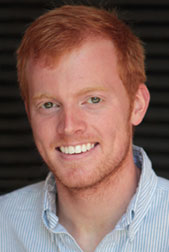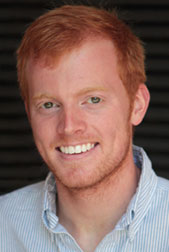Riots, relocation and reforestation: 2010 alum Tommey returns from Guatemala

 NOVEMEBER 11, 2011
NOVEMEBER 11, 2011
By Chloe Kowalski ’12, Contributing Writer
Riots, relocation, and robbery may be an unlikely road to reforestation, but for 2010 graduate Cameron Tommey, these were just a few of the ingredients.
The mix began when Tommey was selected last year as one of seven recipients of the prestigious Compton Fellowship. The award allowed him to pursue a year-long project related to the environment.
Tommey, a Columbus, Ga., native who majored in Earth and Environmental Sciences with a concentration in Latin American Studies, decided to use his $35,000 fellowship to implement a one-year project titled, “Sustainability and Reforestation in the Comotan Region of Guatemala: A Community-Based Approach.”
In May, 2010, just a few weeks after graduating, Tommey set out for Guatemala, a country known for problems with drugs, poverty, riots, and a weak government.
“I went for the challenge. A lot of really negative things happened and I had a lot of challenges while I was there, but I stayed because of the people and the friends that I had made,” said Tommey, who shared his experiences with the university community during a Thursday CLP event.
Tommey saw a challenge in the huge swaths of land that were clear-cut to grow corn. The traditional methods of farming in the region, he said, leech nutrients from the ground and contribute to landslides.
“To ask someone to stop cutting down trees is like asking them to stop breathing,” said Tommey, who described deforestation in Guatemala as an enormous and elusive problem.
“Enormous in the listed facts about deforestation in Latin America and the vast barren plots,” he said. “Elusive in the infinite nature of the culprit.”
He first settled in Pacren, a remote, geographically isolated area. The residents there took Tommey in as their friend and trusted his advice. After a few months, they transformed a piece of unused land into a terraced segment of farmable land. Tommey also introduced new crops, including cucumbers, cilantro and radishes, to the people’s staple diet of corn.
Then, in one night, his world was turned upside down. Rioters set the town on fire and threatened violence to anyone emerging from their houses. Law enforcement was invisible, and Tommey was forced to evacuate under the cover of the night.
He eventually settled in another village, Pannjachel, and began his work anew. From November to May he worked in the community, collecting seeds and nurturing young saplings into trees. His labor produced 600,000 young trees, which were distributed to local farmers for planting.
After nearly a year of work, Tommey returned to the States as Guatemala launched into a new phase of violence and riots.
While Tommey said he wanted to do more in Guatemala, the testimony from one of the farmers he helped suggests he made an impact: “This program has given me hope. I remain committed to these trees, always committed to my children. I see this making the lives of my children and their children better.”